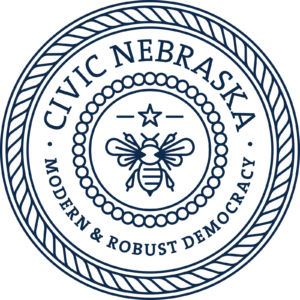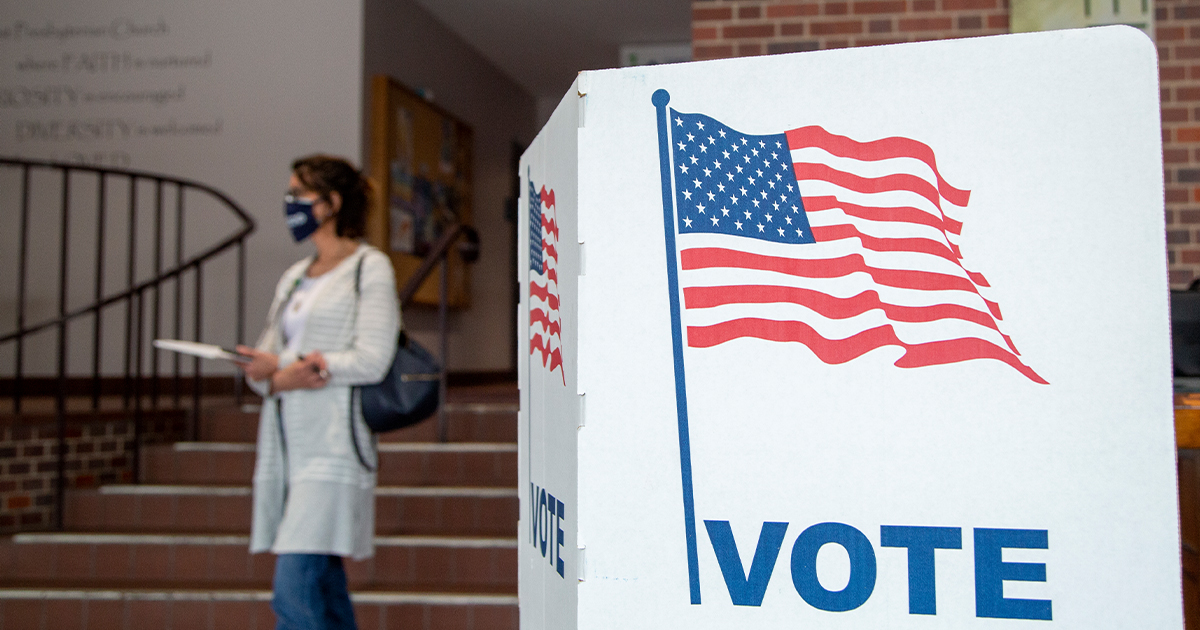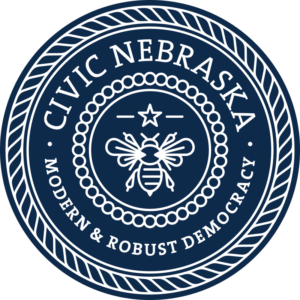As primary voters in Nebraska’s two largest cities narrowed the field of candidates vying for municipal offices on Tuesday, they also harnessed the power of early voting to establish new high-water marks for participation.
Lincoln’s municipal primary, which featured three city council and four school board seats, saw a non-mayoral primary record number of ballots — 44,234 — cast. Some 25,765 came in early, either by mail or in person. Four years ago, 30,005 Lincolnites total voted in the primary.
Turnout also surged in Omaha’s municipal primary. At least 72,752 Omahans voted in the primary, including 52,540 using early ballots. The unofficial vote surpassed the city’s most recent high of 62,519 voters in 2013.
“Voting by mail is not a new idea. It’s been tried and tested in Nebraska for several decades. A silver lining to the pandemic is that in 2020, Nebraskans saw first-hand how safe, convenient, and secure a way it is to exercise their right to vote,” said John Cartier, Civic Nebraska’s director of voting rights. “Now, in 2021, we are again seeing that when people have reliable and safe entry points to the ballot, they will use them. That’s good news for democracy.”

Civic Nebraska assisted with nonpartisan get-out-the-vote efforts in both cities, including making more than 25,000 calls and sending about 47,000 texts to voters in the weeks leading up to Tuesday. It also hosts Election 2021 Central, an information hub including interactive maps, key election dates, videos, and Decoding the Ballot, which breaks down the duties, salaries, and responsibilities of offices up for election.
The emphasis on early voting also likely helped poll workers keep day-of, in-person voters safer and healthier on Tuesday, Cartier said. Civic Nebraska deployed about 20 Election Protection observers to various polling sites across Lincoln and Omaha on Tuesday. Observers reported smooth operations at an overwhelming majority of precincts, thanks to lightened day-of, in-person voting. Those in the field also pointed out enhanced signage emphasizing that in Nebraska, in-person voters are not required to show photo identification in order to receive a ballot.
Civic Nebraska fielded about a dozen calls to its Election Protection Line, which was staffed Tuesday by its Voting Rights Initiatives staff and volunteers. Most questions were related to voters’ eligibility status based on their home address; residents of Douglas (Omaha) or Lancaster (Lincoln) counties, respectively, whose addresses were outside city limits were not eligible for either municipal-only election.
After an intense and hard-fought November 2020 election, Cartier said, it might have been easy for Lincoln and Omaha voters to disengage. However, Tuesday’s voter participation indicated continued enthusiasm for voting that bodes well for both cities.
“The persistence of COVID-19 has been challenging, but Lincolnites, Omahans, and Nebraskans should be proud that we have not let our elections fall victim to the pandemic,” Cartier said. “This year as well as in 2020, election officials, voters, and organizations such as ours have worked together to advocate for and promote pandemic solutions such as vote-by-mail.
“We’re encouraged that not only have these efforts helped ensure our democratic processes will survive this public-health crisis, but also thrive when it’s over.”
![]()


